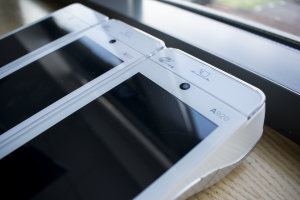At Bespoke Merchant Solutions, we understand it can be difficult...
Cashless Societies: Turn Rapid Changes into Opportunities
Discover more
The Crucial Shift to Cashless Transactions for SMEs
In the ever-changing landscape of small to medium-sized businesses (SMEs),...
A Merchant’s Guide to a Successful Christmas
We understand the challenges that come with the influx of...
The Importance of Accommodating Digital Wallet Payments
In 2021, 90% of card transactions were contactless payments. Apps...
Monek: Our New Trusted Partner Bank
We are excited to announce that BMS is venturing on...
Cash is king, or so the saying goes, however, it seems like a royal coup in the form of a cashless society is taking place.
The rise of the cashless society has been on the cards for some time, quite literally. Debit and Credit card payments have experienced a considerable boost precipitated by the pandemic, the need to reduce contamination areas to a minimum and pandemic-driven online shopping.
This pandemic-led trend is clear. In 2020, the use of coins and notes fell by 35% in the UK. Furthermore, many people have radically reduced the rate at which they use cash, 13.7 million people led a cashless life in 2020, almost double the 7.4 million people who did the same in 2019.
This trend was encouraged by businesses big and small who, throughout the pandemic, started to phase out the use of cash in stores. One of the biggest companies to do so was the Swedish retailer Ikea. Though they have since reversed this policy, for many, the dramatic switch in spending behaviour to cashless payment methods has stuck.
The push towards a cashless society has also been catalysed by the growth in people using their digital wallet which includes Google and Apple Pay. Indeed, the use of contactless and mobile payments accounts for over 25% of all payments.
This will likely increase after the Financial Conduct Authority raised the contactless limit from £45 to £100 in October. Whilst the Access to Cash Review rightly highlight the considerable reliance 5 million people have on cash and their need to be included in the future of commercial transactions, it seems that the march to a cashless society may have unstoppable momentum. Since 2010, cash payments have declined by 70%.
The predominance of cashless infrastructures such as the increase of contactless limit and the reduction in transaction friction has aligned with a deconstruction of the traditional architectures of a cash-reliant society.
ATMs (Cash Machines) are one example of a formerly vital aspect of society’s financial infrastructure that is beginning to wane. The number of ATMs in the UK peaked in 2015 at 70,588, however, this has fallen steadily each year. In July 2021, that number fell to 52,951 with only 41,000 of these being free to use. The dramatic fall will likely place pressure on cash machine operators who face similar running costs for their ATMs but a shrinking client base.
The effect of this pressure is already apparent. Which? has highlighted that the closure of cash machines is occurring at a rate of around 300 each month.
The fall of cash and the ATM has significant consequences for your business.
The reduction of cash transactions removes several barriers for businesses. For example, retailers can avoid substantial business bank charges. However, businesses also need to educate themselves on how to capitalise on the shift to cashless payments to maximise their share of the profits.
How can BMS help?
With the predominance of cashless payments, it’s vital that you get the best package for your business. At BMS, we can save our customers up to 35% on their terminal packages.
Previously, many businesses got away with not giving too much thought about their payment terminal package because it didn’t account for the majority of their sales, however; this has all changed.
If you want to get ahead of the curve, then get in contact today to speak to one of our industry experts to learn how we can help you Do Business Better!

Payment & Merchant Insights
How to Effectively Manage Multiple Card Machines
At Bespoke Merchant Solutions, we understand it can be difficult to manage multiple card machines, however it is crucial for
February 29, 2024

Payment & Merchant Insights
The Crucial Shift to Cashless Transactions for SMEs
In the ever-changing landscape of small to medium-sized businesses (SMEs), staying ahead of the curve is imperative for sustained success.
January 23, 2024

Payment & Merchant Insights
A Merchant’s Guide to a Successful Christmas
We understand the challenges that come with the influx of customers during festive periods. Let’s unwrap some tips and tricks
November 14, 2023




